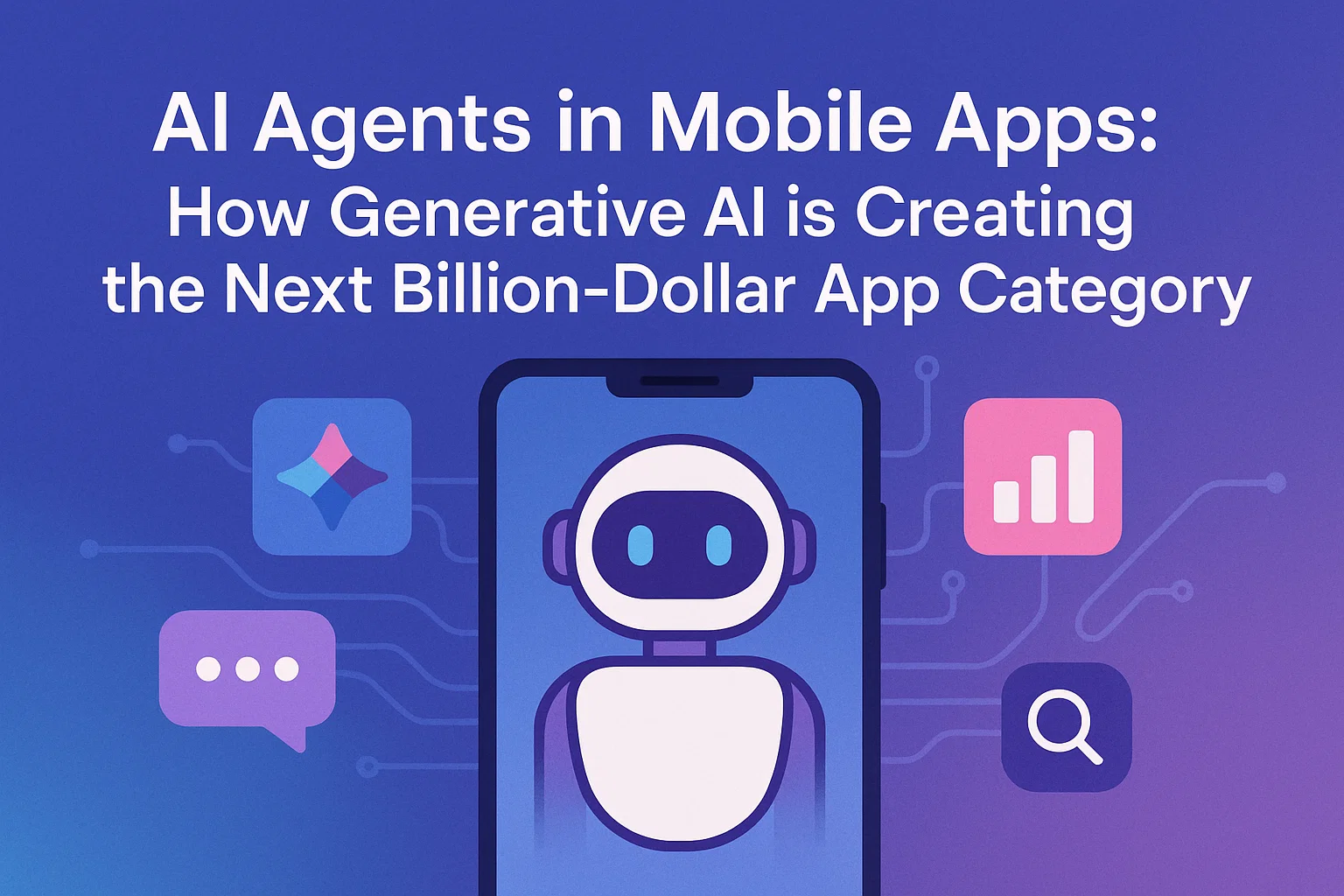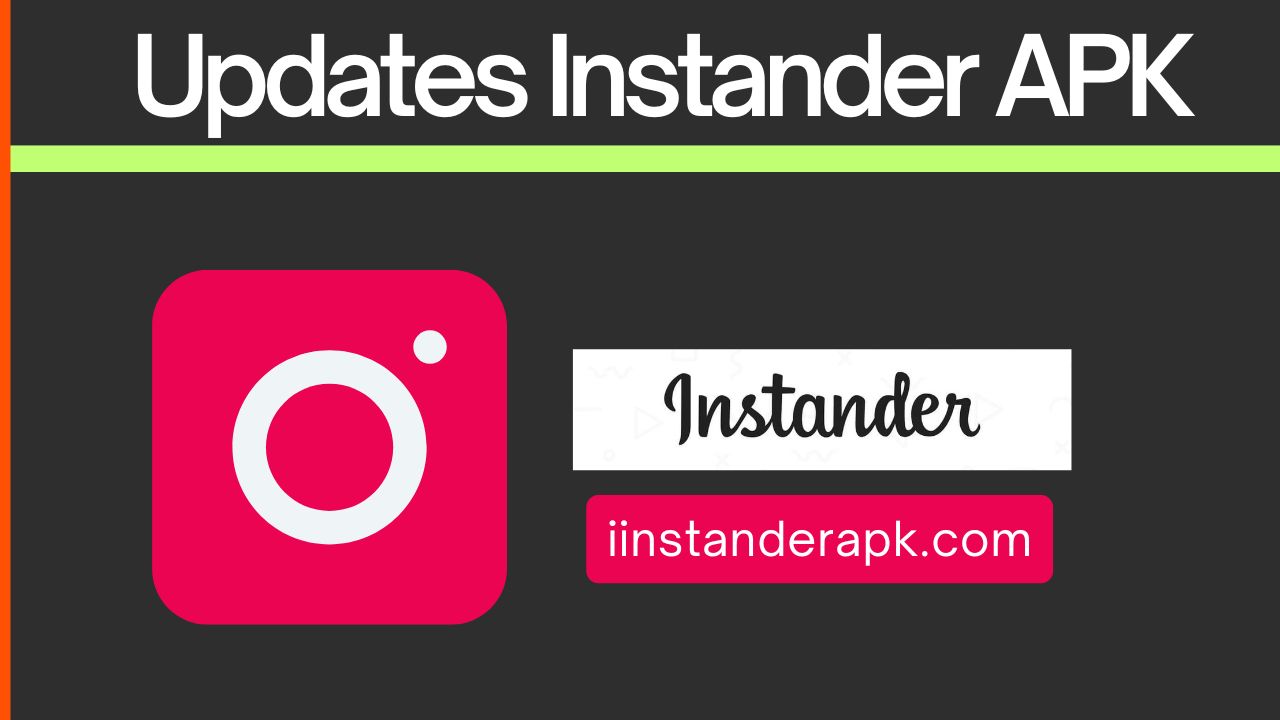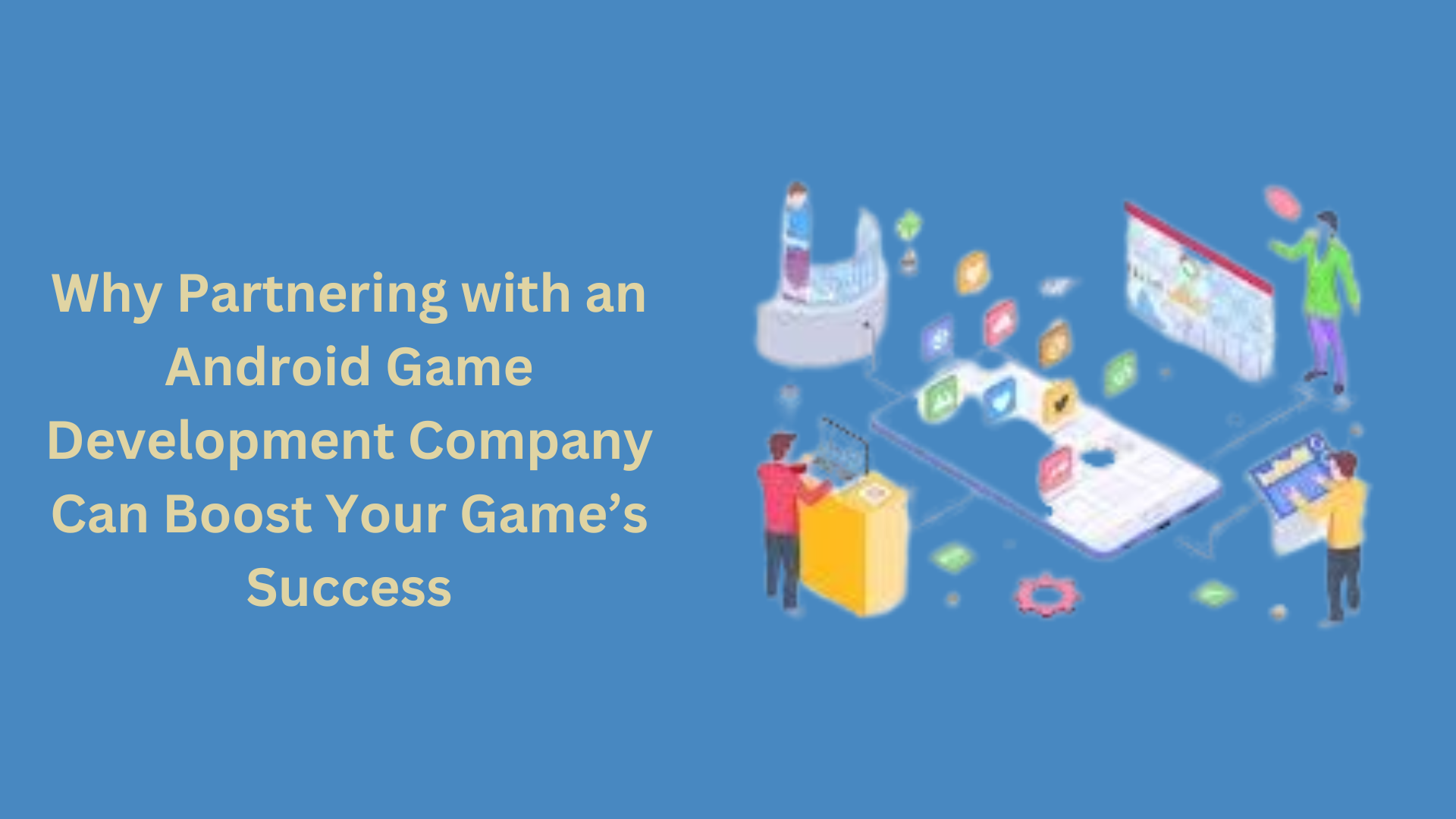AI Agents in Mobile Apps: How Generative AI is Creating the Next Billion-Dollar App Category

Strong 8k brings an ultra-HD IPTV experience to your living room and your pocket.
The mobile app landscape is experiencing its most dramatic transformation since the introduction of smartphones. While developers once focused on building intuitive user interfaces and seamless user experiences, the game has completely changed. Today, the race to build AI-first mobile applications is creating unicorn startups overnight, with some AI-powered apps reaching billion-dollar valuations in record time.
The statistics are staggering: by 2025, 39% of organizations will be actively experimenting with AI, while 14% will have fully integrated it into their processes. But here's what's truly revolutionary – we're not just talking about adding AI features to existing apps. We're witnessing the birth of an entirely new app category where AI agents serve as the primary interface, making traditional app navigation obsolete.
The AI Agent Revolution: From Chatbots to Autonomous Mobile Assistants
The evolution from simple chatbots to sophisticated AI agents represents one of the most significant technological leaps in mobile app development. Unlike traditional chatbots that follow pre-programmed scripts, modern AI agents can understand context, learn from interactions, and make autonomous decisions to help users achieve their goals.
What Makes AI Agents Different
Traditional mobile apps require users to navigate through menus, tap buttons, and follow predetermined workflows. AI agents flip this paradigm entirely. Instead of users adapting to the app's interface, the AI agent adapts to the user's natural communication style and preferences.
Consider the difference between a traditional banking app and an AI-powered financial assistant. In a conventional app, users must navigate to "Accounts," then "Savings," then "Transfer Funds," and fill out multiple forms. An AI agent simply requires the user to say, "Move $500 from savings to checking for tomorrow's rent payment," and the transaction is completed with appropriate confirmations.
The Technical Architecture Behind AI Agents
- Modern AI agents in mobile apps are built on sophisticated architectures that combine multiple AI technologies:
- Natural Language Processing (NLP): Enables the agent to understand user intent from conversational input, regardless of how the request is phrased.
- Machine Learning Models: Allow the agent to learn from user behavior and preferences, becoming more personalized over time.
- Context Management: Maintains conversation history and user context across multiple interactions and app sessions.
- Integration APIs: Connect the AI agent to external services, databases, and third-party applications to perform actions on behalf of the user.
- Real-time Processing: Ensures responses are generated quickly enough to maintain natural conversation flow.
Market Leaders Setting the Standard
Several companies have already demonstrated the massive potential of AI agents in mobile applications. Character.AI, which allows users to create and interact with personalized AI characters, reached a $1 billion valuation within 18 months of launch. Similarly, Replika, an AI companion app, has generated over $35 million in annual revenue through subscription-based interactions with AI personalities.
These success stories share common characteristics: they prioritize natural language interaction, learn from user behavior, and create emotional connections that keep users engaged for extended periods.
Context-Aware Applications That Recognize User Emotions and Adapt
The next frontier in AI-powered mobile apps goes beyond understanding what users say – it's about understanding how they feel and adapting accordingly. Context-aware applications represent a quantum leap in personalization, creating experiences that feel genuinely human.
Emotional Intelligence in Mobile Apps
Advanced AI agents can now analyze multiple data points to understand user emotional states:
- Text Analysis: Sentiment analysis of messages, emails, and social media posts can indicate mood and stress levels.
- Voice Patterns: Tone, pace, and vocal stress patterns provide insight into emotional state.
- Usage Patterns: Changes in app usage frequency, session duration, and interaction patterns can signal life changes or emotional shifts.
- Biometric Data: With user permission, heart rate, sleep patterns, and activity levels from wearable devices provide additional context.
Practical Applications of Emotional AI
- Mental Health Support: Apps like Woebot and Wysa use AI agents to provide personalized mental health support, adapting their communication style based on the user's emotional state. During periods of high stress, the AI might suggest breathing exercises or meditation, while during positive periods, it might encourage goal-setting activities.
- Productivity Optimization: AI agents can recognize when users are in flow states versus when they're struggling with focus. During high-productivity periods, the agent might minimize interruptions and suggest tackling complex tasks. During low-energy periods, it might recommend breaks or simpler activities.
- Learning Adaptation: Educational apps use emotional AI to adjust difficulty levels and teaching methods based on user frustration or confidence levels. If a student is struggling with a concept, the AI agent might switch to visual explanations or provide additional practice problems.
Privacy and Ethical Considerations
The power to understand and respond to human emotions comes with significant responsibility. Successful AI agents must balance personalization with privacy protection. Users need transparency about what data is collected, how it's used, and the ability to control their privacy settings.
Leading apps implement privacy-by-design principles, processing emotional data locally on the device whenever possible and providing clear opt-in mechanisms for sharing sensitive information.
Revenue Models for AI-Powered Apps: Subscription vs Usage-Based
The monetization strategies for AI-powered mobile apps differ significantly from traditional app revenue models. The ongoing operational costs of AI processing, combined with the high value users place on personalized AI interactions, create unique opportunities for sustainable revenue generation.
Subscription-Based Models
Tiered Subscriptions: Most successful AI apps implement tiered subscription models that offer different levels of AI capability. Basic tiers might include limited daily interactions, while premium tiers offer unlimited access, advanced features, and priority processing.
Example: Character.AI offers free access with limited messaging, while their premium subscription ($9.99/month) provides unlimited messaging, faster response times, and access to premium AI characters.
Freemium Approach: Many AI apps use freemium models where basic AI interactions are free, but advanced features require subscription. This approach allows users to experience the value of AI agents before committing to payment.
Usage-Based Models
- Token-Based Systems: Some apps implement token or credit systems where users purchase credits for AI interactions. This model works well for specialized AI tools or when AI processing costs are high.
- Pay-Per-Feature: Advanced AI capabilities like image generation, voice synthesis, or complex analysis can be offered as premium features with per-use pricing.
Hybrid Monetization Strategies
The most successful AI-powered apps often combine multiple revenue streams:
- Subscription + Marketplace: Apps might offer subscriptions for core AI features while also providing a marketplace for premium AI personalities, templates, or specialized agents.
- Data Insights: With proper user consent, anonymized interaction data can provide valuable insights for businesses, creating additional revenue streams.
- Enterprise Licensing: Consumer AI apps can often be adapted for enterprise use, creating B2B revenue opportunities.
Revenue Performance Metrics
AI-powered apps typically show superior metrics compared to traditional apps:
- Higher ARPU (Average Revenue Per User): Users who regularly interact with AI agents typically generate 3-5x higher revenue than traditional app users.
- Improved Retention: The personalized nature of AI interactions creates stronger user attachment, leading to lower churn rates.
- Increased Session Length: Users spend significantly more time with AI agents compared to traditional app interfaces, creating more monetization opportunities.
Technical Implementation: Integrating OpenAI, Claude, and Custom AI Models
Building AI agents into mobile applications requires careful consideration of architecture, performance, and cost optimization. The choice between different AI providers and implementation approaches can significantly impact both user experience and business viability.
AI Provider Comparison
OpenAI Integration:
- Strengths: Excellent natural language understanding, large knowledge base, strong reasoning capabilities
- Considerations: Higher cost per API call, requires internet connectivity, potential latency issues
- Best Use Cases: Complex conversational AI, content generation, problem-solving applications
Claude Integration:
- Strengths: Strong safety features, excellent at following instructions, good at nuanced conversations
- Considerations: API availability may be limited, newer platform with fewer resources
- Best Use Cases: Customer service, educational content, sensitive applications requiring high safety standards
Custom AI Models:
- Strengths: Complete control over functionality, potential cost savings at scale, can run offline
- Considerations: Requires significant ML expertise, longer development time, ongoing model maintenance
- Best Use Cases: Specialized domains, high-volume applications, privacy-sensitive use cases
Implementation Architecture
- Hybrid Approach: Many successful apps use a combination of cloud-based AI services for complex reasoning and local, lightweight models for simple tasks and offline functionality.
- Edge Computing: Implementing AI processing on-device reduces latency and protects privacy but requires careful optimization for mobile hardware constraints.
- API Gateway Pattern: Using an API gateway to manage AI service calls provides flexibility to switch between providers, implement rate limiting, and monitor usage costs.
Performance Optimization Strategies
- Caching: Implementing intelligent caching strategies for common AI responses can significantly reduce API costs and improve response times.
- Batch Processing: For non-real-time AI tasks, batch processing can reduce costs and improve efficiency.
- Progressive Enhancement: Starting with simple AI features and gradually introducing more complex capabilities allows for better user adoption and cost management.
Cost Management
- Token Optimization: Implementing prompt engineering techniques to minimize token usage while maintaining response quality.
- User Limits: Setting reasonable usage limits for free users while providing unlimited access for premium subscribers.
- Monitoring and Alerting: Implementing comprehensive monitoring to track AI usage costs and prevent unexpected expenses.
Privacy and Security Considerations for AI Apps
The integration of AI agents into mobile applications introduces unique privacy and security challenges that require careful attention. Users trust AI agents with increasingly personal information, making robust security measures essential for both legal compliance and user trust.
Data Protection Strategies
- Local Processing: Whenever possible, process sensitive data locally on the device rather than sending it to cloud services. This approach reduces privacy risks and improves response times.
- Encryption: Implement end-to-end encryption for all AI interactions, ensuring that even if data is intercepted, it remains unreadable.
- Minimal Data Collection: Follow the principle of data minimization – collect only the information necessary for the AI agent to function effectively.
- Compliance Requirements
- GDPR Compliance: For apps serving European users, implement clear consent mechanisms, data portability features, and the right to be forgotten.
- CCPA Compliance: California users must be provided with clear privacy notices and the option to opt out of personal information sales.
- Industry-Specific Regulations: Healthcare apps must comply with HIPAA, financial apps with PCI DSS, and educational apps with FERPA.
User Control and Transparency
- Privacy Dashboards: Provide users with clear visibility into what data has been collected, how it's being used, and the ability to delete their information.
- Granular Permissions: Allow users to control which types of data the AI agent can access and use.
- Explainable AI: When possible, provide users with explanations of how the AI agent reached its conclusions or recommendations.
Security Best Practices
- API Security: Implement proper authentication, rate limiting, and input validation for all AI service calls.
- Prompt Injection Prevention: Protect against malicious prompts that could manipulate the AI agent into inappropriate behavior.
- Regular Security Audits: Conduct regular security assessments to identify and address potential vulnerabilities.
Case Studies: Apps That Went Viral Using AI Agents
Examining successful AI-powered mobile applications provides valuable insights into what works in this rapidly evolving market. These case studies demonstrate different approaches to AI integration and monetization.
Character.AI: The Social AI Revolution
Launch Strategy: Character.AI launched with a simple but powerful concept – users could create and interact with AI characters based on fictional personalities, historical figures, or original creations.
Key Success Factors:
- User-Generated Content: Allowing users to create their own AI characters created a viral loop where users shared their creations with friends
- Emotional Connection: The AI characters were designed to form genuine emotional connections with users, leading to high engagement and retention
- Community Features: Social elements like character sharing and user-generated content created network effects
Results: Reached 1.7 million downloads within the first month and achieved a $1 billion valuation within 18 months.
Revenue Model: Freemium with premium subscriptions offering unlimited messaging, priority access, and advanced features.
Replika: AI Companionship at Scale
Launch Strategy: Replika positioned itself as an AI companion that learns from conversations and develops a unique personality over time.
Key Success Factors:
- Personalization: Each AI companion becomes unique through conversations, creating strong user attachment
- Emotional Support: The app provided genuine emotional support during the COVID-19 pandemic, driving massive growth
- Continuous Learning: The AI agent improves over time, creating a sunk-cost effect that increases user retention
Results: Over 10 million users worldwide with $35+ million in annual recurring revenue.
Revenue Model: Subscription-based with premium features for deeper conversations and customization options.
Socratic by Google: AI-Powered Learning
Launch Strategy: Google acquired Socratic and integrated advanced AI to help students with homework and learning.
Key Success Factors:
- Problem-Solving Focus: The AI agent helps students understand concepts rather than just providing answers
- Multi-Modal Input: Students can ask questions via text, voice, or by taking photos of problems
- Educational Value: Parents and teachers endorsed the app because it genuinely improved learning outcomes
Results: Millions of downloads and integration into Google's education ecosystem.
Revenue Model: Free with potential for premium educational features and enterprise licensing.
Common Success Patterns
- Immediate Value: All successful AI apps provide clear, immediate value to users from the first interaction.
- Emotional Engagement: The most successful apps create emotional connections that keep users returning.
- Social Elements: Apps with social features or user-generated content show stronger viral growth.
- Continuous Improvement: AI agents that learn and improve over time create stronger user attachment.
How Leading Development Companies Integrate AI into Mobile Apps
The success of AI-powered mobile applications depends heavily on the technical expertise and strategic approach of the development team. Leading mobile app development companies in India have emerged as pioneers in AI integration, offering specialized services that help businesses capitalize on this transformative technology.
The Strategic Approach to AI Integration
Professional development teams follow a systematic approach to AI integration that begins with understanding the specific business problem the AI agent needs to solve. Rather than adding AI features for their own sake, successful implementations focus on creating genuine value for users.
- Discovery Phase: The development process begins with extensive user research to understand pain points that AI agents can address. This includes analyzing user behavior, conducting interviews, and identifying opportunities where AI can create significant value.
- MVP Development: Starting with a minimum viable product allows for rapid testing and iteration. Early AI implementations might focus on a single use case or user journey, gradually expanding capabilities based on user feedback.
- Iterative Enhancement: AI agents improve over time through machine learning and user feedback. Professional development teams implement systems for continuous learning and improvement.
Technical Implementation Strategies
- Microservices Architecture: Successful AI apps often use microservices architecture, allowing different AI capabilities to be developed, deployed, and scaled independently.
- Cloud-Native Development: Leveraging cloud platforms provides the scalability and computing power necessary for AI processing while managing costs effectively.
- Cross-Platform Compatibility: Modern AI agents need to work seamlessly across iOS, Android, and web platforms, requiring expertise in cross-platform development frameworks.
Quality Assurance for AI Applications
Testing AI-powered applications requires specialized approaches beyond traditional mobile app testing:
- Conversation Testing: Ensuring AI agents respond appropriately to a wide range of user inputs, including edge cases and potentially problematic queries.
- Performance Testing: Verifying that AI processing doesn't negatively impact app performance or battery life.
- Bias Testing: Identifying and addressing potential biases in AI responses that could create poor user experiences or legal issues.
Ongoing Support and Optimization
AI-powered apps require ongoing maintenance and optimization that goes beyond traditional app support:
- Model Updates: Regularly updating AI models to improve performance and add new capabilities.
- Usage Analytics: Monitoring AI agent interactions to identify improvement opportunities and user satisfaction metrics.
- Cost Optimization: Continuously optimizing AI processing costs while maintaining performance quality.
Future Predictions: AI Agents Replacing Traditional App Interfaces
The trajectory of AI agent development suggests we're approaching a fundamental shift in how users interact with mobile applications. Within the next 2-3 years, we can expect to see AI agents become the primary interface for many app categories.
The End of Traditional Navigation
Voice-First Interactions: As voice recognition and natural language processing continue to improve, users will increasingly interact with apps through conversation rather than touch interfaces.
Contextual Awareness: Future AI agents will understand user context so well that they can anticipate needs and take proactive actions without explicit requests.
Multi-Modal Interfaces: AI agents will seamlessly blend voice, text, visual, and gesture inputs to create more natural interaction patterns.
Industry-Specific Transformations
- Healthcare: AI agents will serve as personal health assistants, monitoring symptoms, scheduling appointments, and providing personalized health recommendations.
- Finance: Banking and investment apps will be dominated by AI agents that can execute complex financial transactions through natural language commands.
- Education: Learning apps will use AI tutors that adapt to individual learning styles and provide personalized instruction.
- E-commerce: Shopping will become conversational, with AI agents helping users discover products, make comparisons, and complete purchases through natural dialogue.
The Developer Opportunity
This transformation creates unprecedented opportunities for developers and businesses:
- First-Mover Advantage: Companies that successfully integrate AI agents now will have significant competitive advantages as the technology becomes mainstream.
- New Revenue Models: AI agents enable new monetization strategies that weren't possible with traditional app interfaces.
- Reduced Development Costs: Once AI agents become sophisticated enough, they may reduce the need for complex user interface development.
Preparing for the AI-First Future
- Skill Development: Developers need to build expertise in AI integration, natural language processing, and conversational interface design.
- User Experience Rethinking: UX designers must learn to create experiences that feel natural and conversational rather than interface-driven.
- Business Model Innovation: Companies need to explore new ways to create value through AI agent interactions.
Conclusion: Seizing the AI Agent Opportunity
The mobile app industry stands at an inflection point. AI agents are not just a new feature to add to existing apps – they represent a fundamental shift in how users interact with technology. The companies that recognize this shift and act decisively will capture the lion's share of the next billion-dollar app category.
The evidence is clear: AI-powered mobile applications are generating unprecedented user engagement, commanding premium pricing, and creating entirely new market categories. From Character.AI's billion-dollar valuation to Replika's $35 million in annual revenue, the success stories demonstrate the massive potential of AI agent integration.
However, success in this space requires more than just adding AI features to existing apps. It demands a strategic approach that prioritizes user value, implements robust technical architecture, and addresses privacy and security concerns proactively. The most successful AI-powered apps create emotional connections with users, provide immediate value, and continuously improve through machine learning.
For businesses looking to enter this space, the window of opportunity is still open, but it won't remain so indefinitely. The companies that move quickly to integrate AI agents into their mobile strategies will be positioned to capture significant market share in what promises to be the next major wave of mobile app innovation.
The future belongs to AI agents that can understand context, recognize emotions, and adapt to user needs in real-time. By 2026, we predict that AI agents will be the primary interface for the majority of mobile applications, making traditional app navigation feel as outdated as physical keyboards on smartphones.
The question isn't whether AI agents will dominate mobile apps – it's whether your business will be leading this transformation or following it. The time to act is now, and the potential rewards for early movers are astronomical.
Note: IndiBlogHub features both user-submitted and editorial content. We do not verify third-party contributions. Read our Disclaimer and Privacy Policyfor details.







